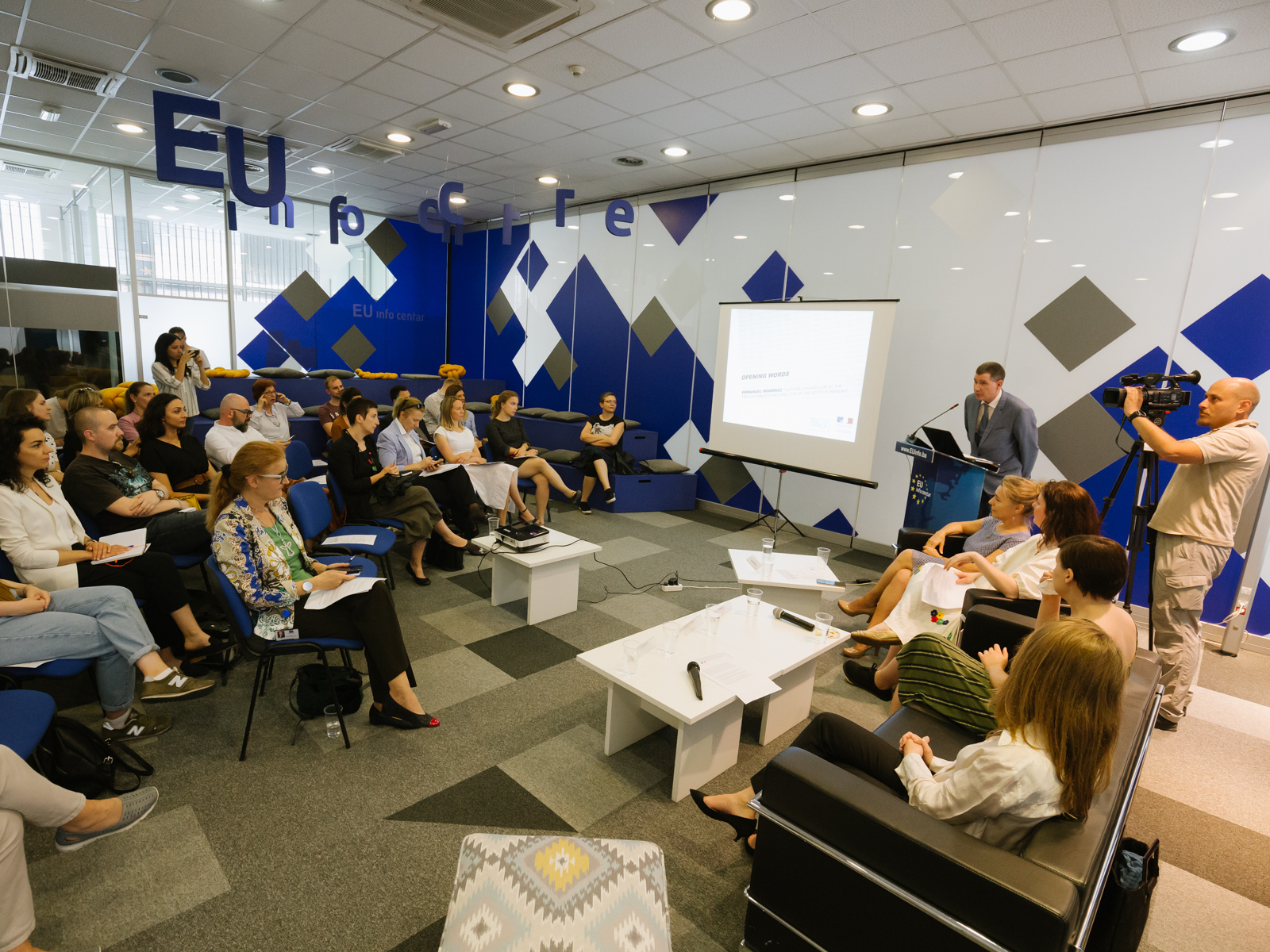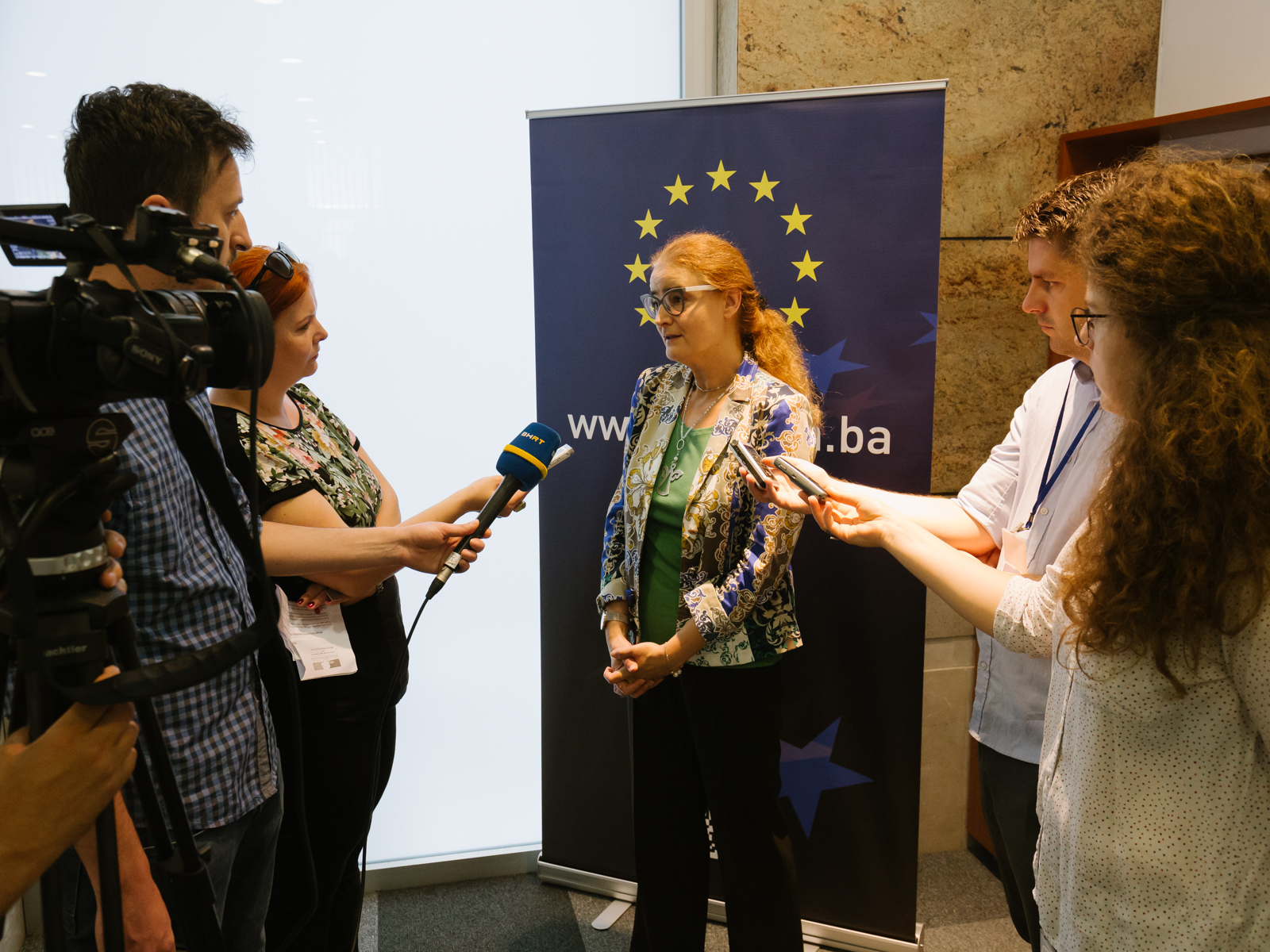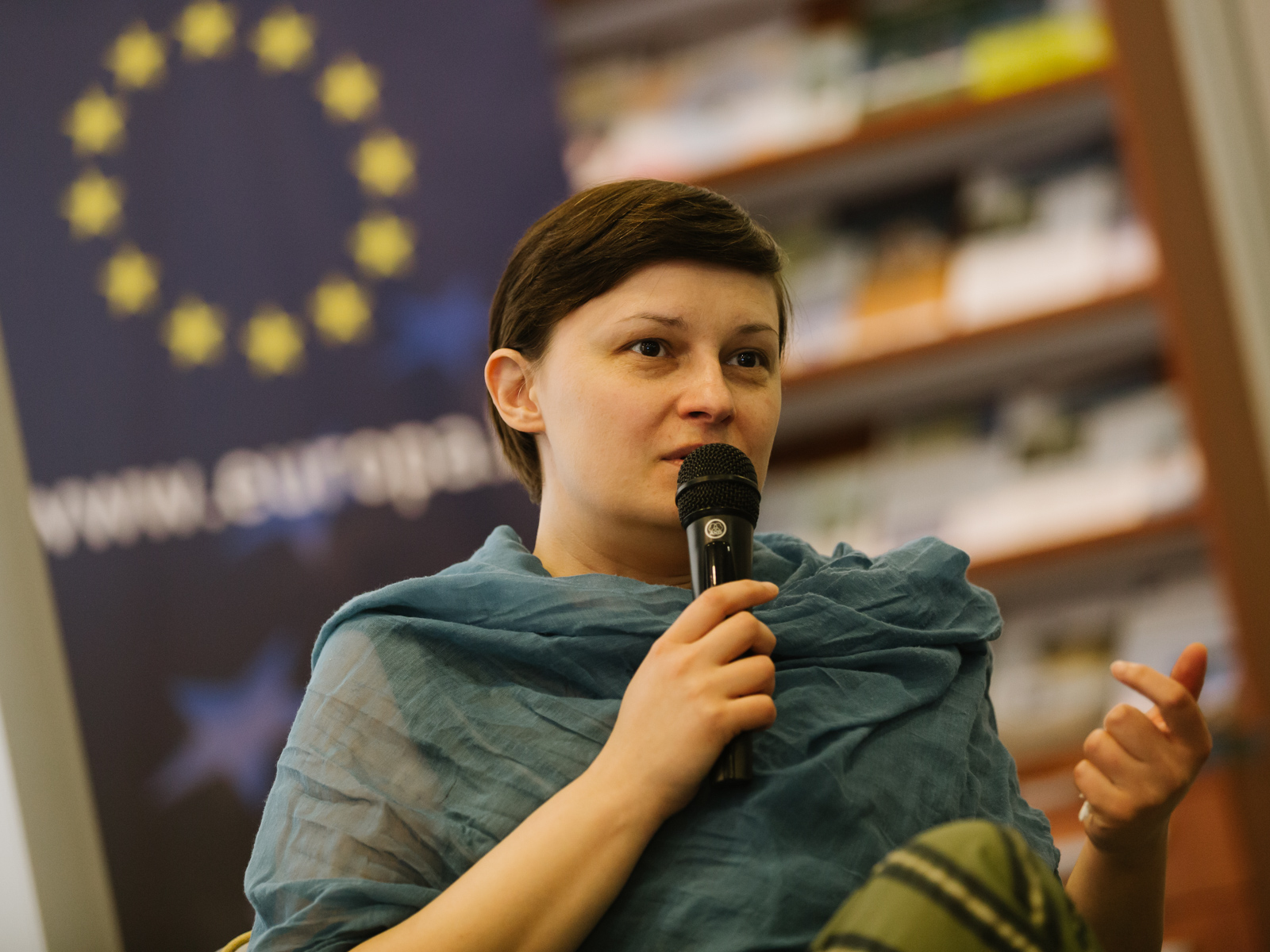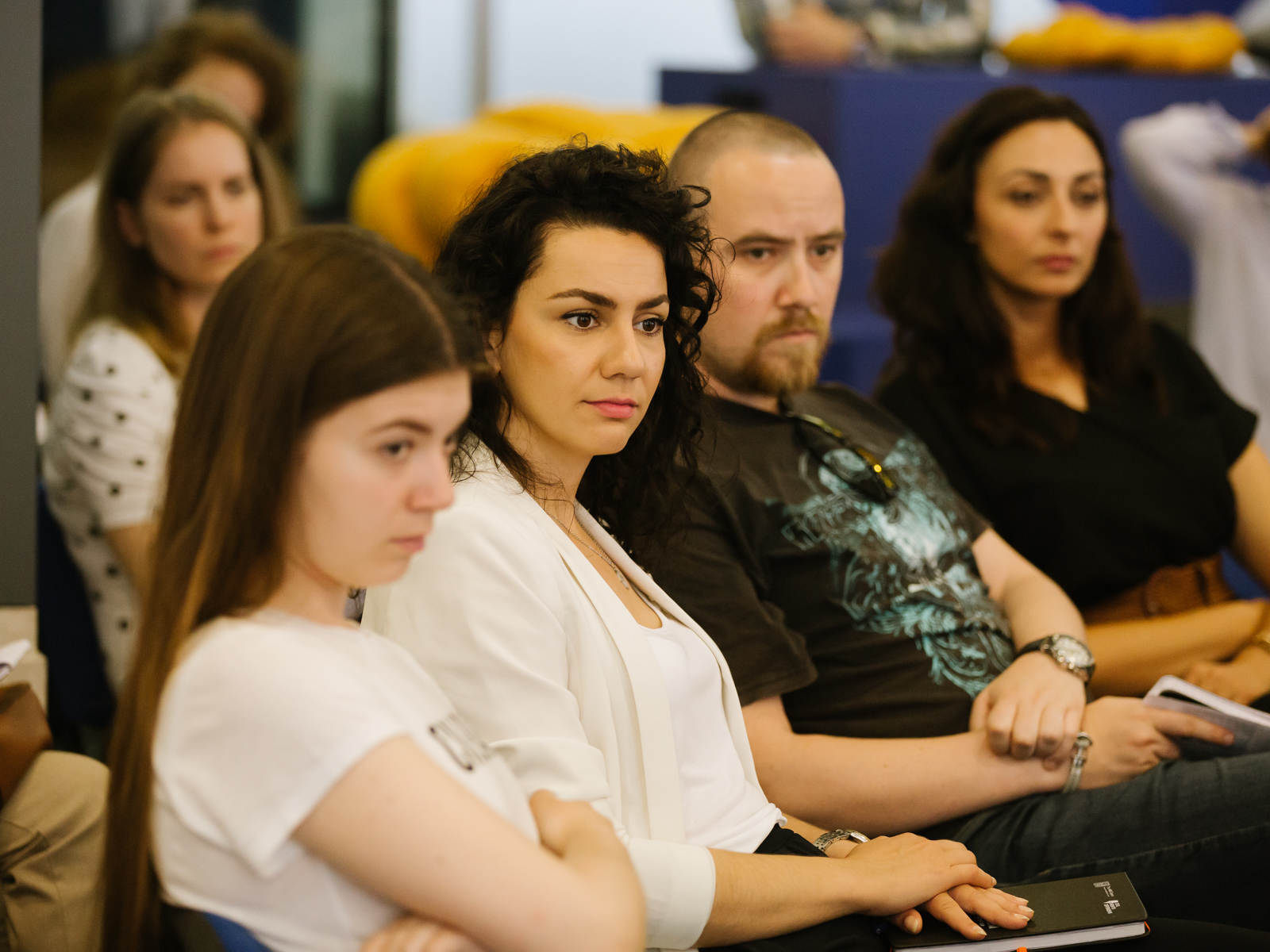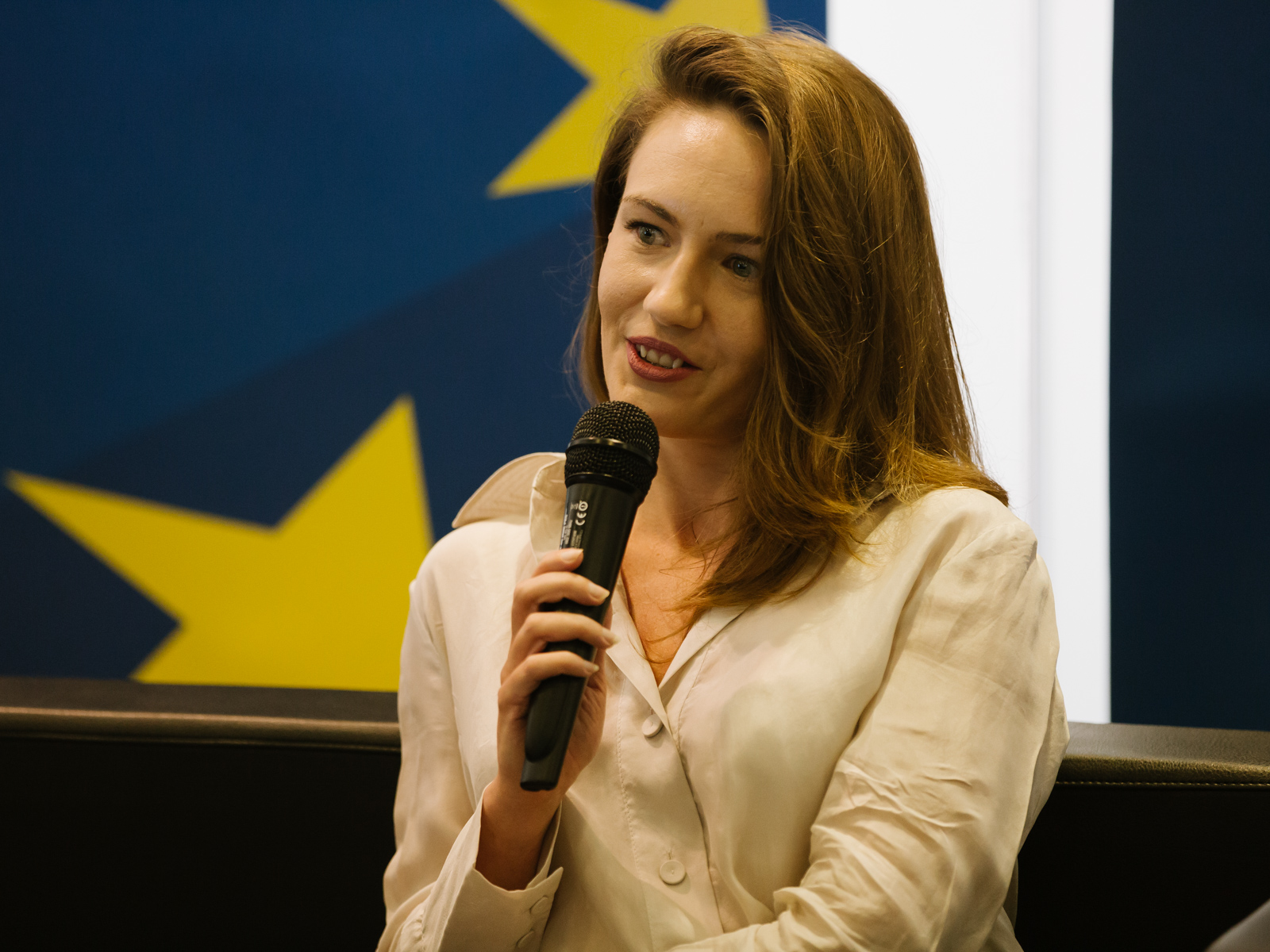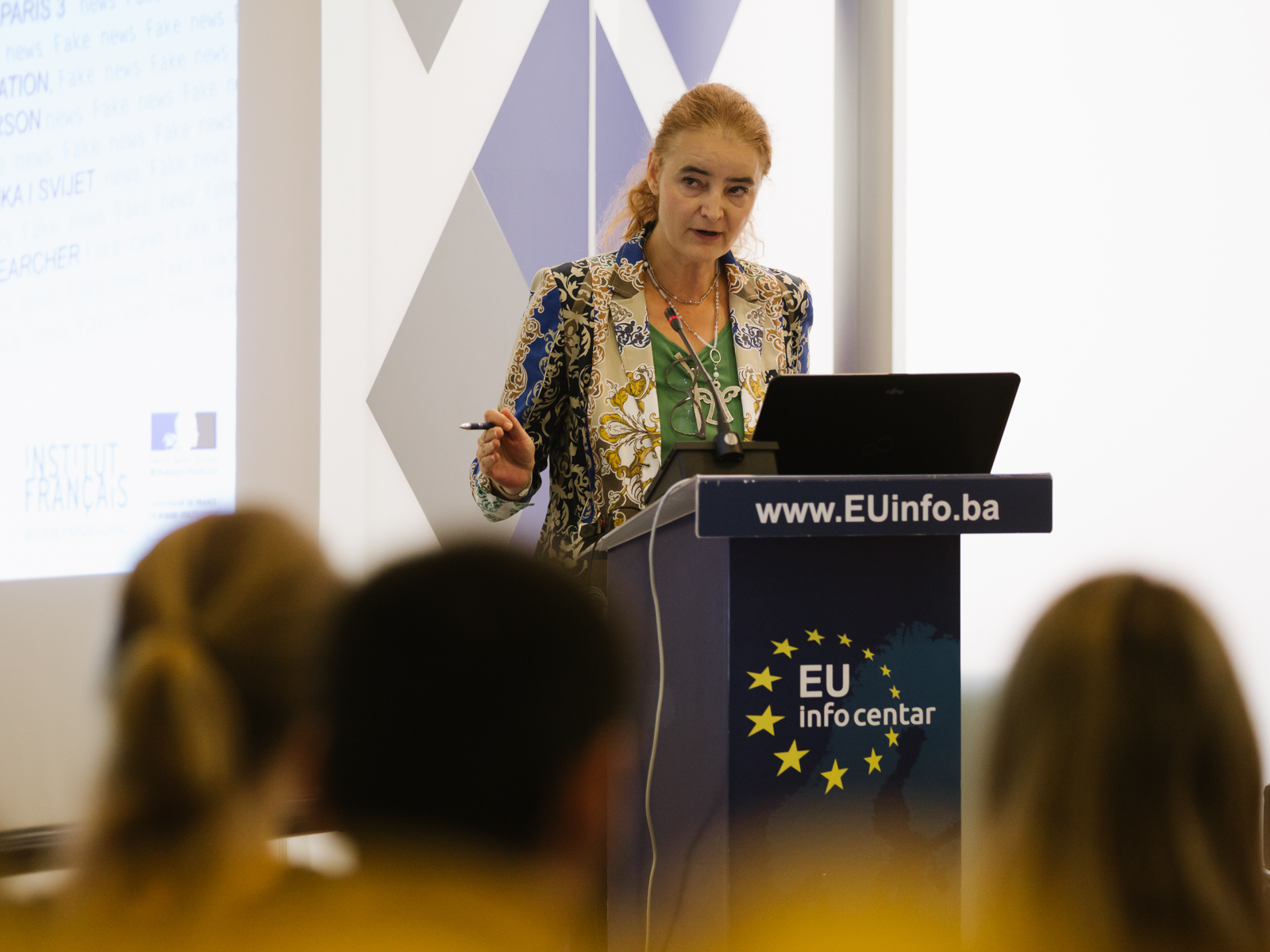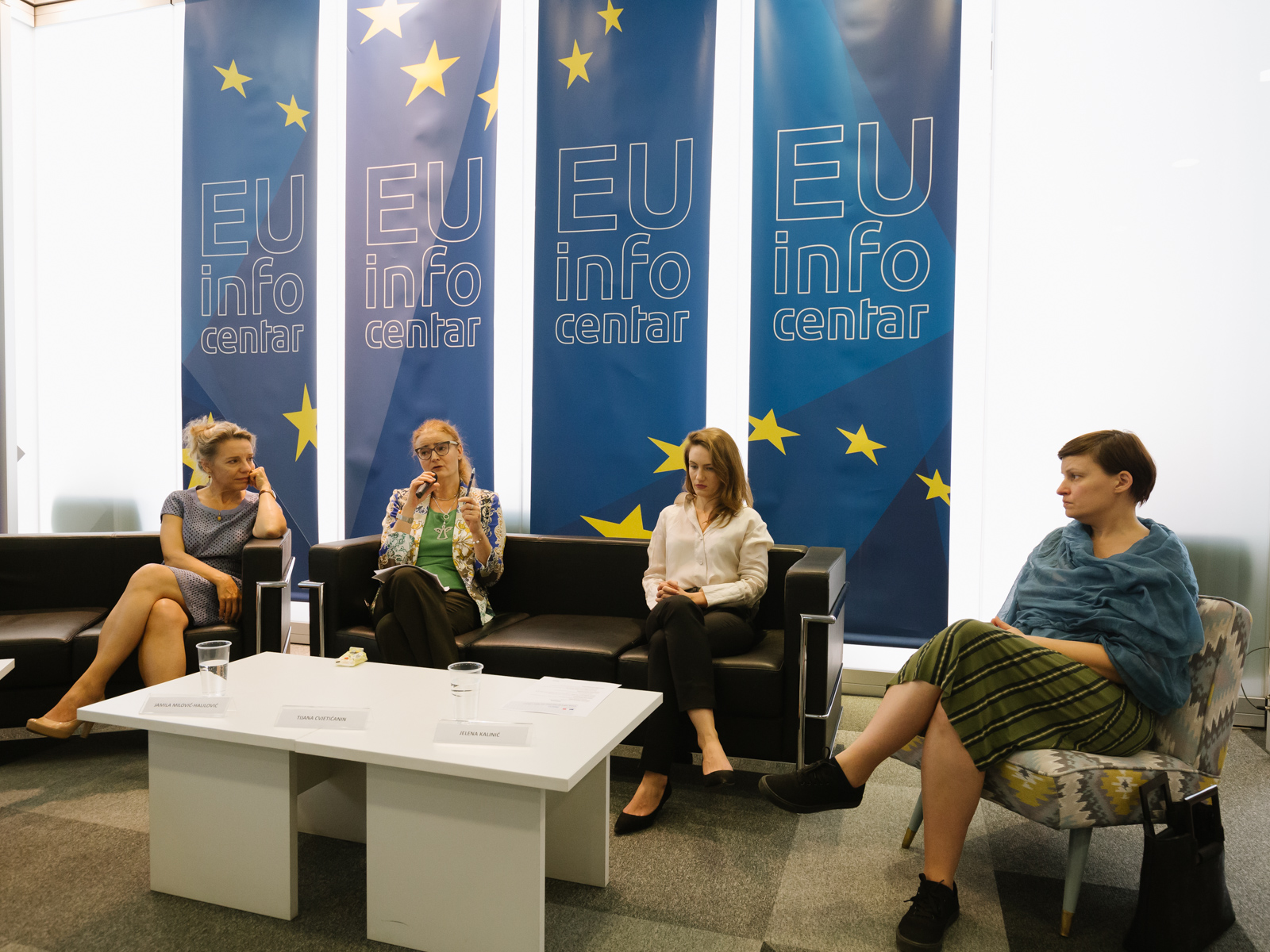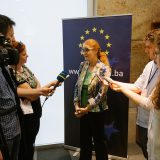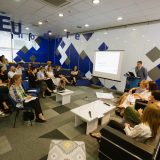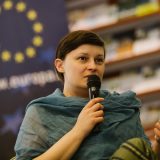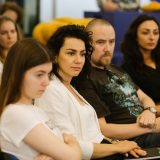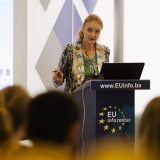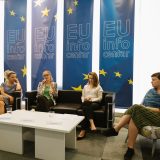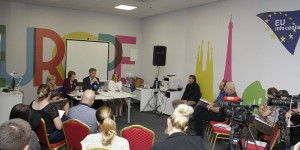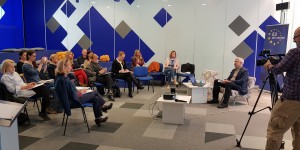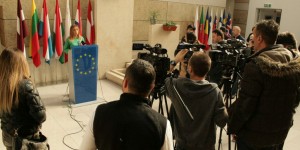Bosnia and Herzegovina is no exception when it comes to the growing phenomenon of fake news and disinformation. Unverified information is a not a rare phenomenon and it is becoming increasingly difficult to effectively ensure debunking of fake news and enable education of citizens to seek verified information before reaching conclusions, agreed participants of the roundtable on fake news and media literacy, organised by the French Institute in Bosnia and Herzegovina.
“Fake news is a relatively new phenomenon that requires new tools and a drastic change of perception. It all changed back in 2012 when our perception of the Internet and social media changed from something ‘funny and entertaining’ to tools with powers we were not aware of before. We have to be aware of how fake news works and the reasons behind it, in order to be effective,” stressed Divina Frau-Meigs, an expert from the High Level Expert Group of the European Commission on Fake News and Online Disinformation.
While debunking fake news takes approximately two hours, identification of a piece of news as being fake can take up to twelve hours, by which time it can cause considerable damage. Fact-checking is one of the core tools in the journalistic process but it is often inadequate in reaching a larger number of citizens and changing perception towards the negative impact of fake news.
“Media literacy is crucial for countries aiming to protect and develop their democracies and it is impossible without guaranteed freedom of expression and freedom of media. The European Union looks at media literacy as an ability to access different forms of media, such as TV, radio, the Internet and print media, and at the same time the ability to access all of it to understand and critically evaluate different aspects of media content,” remarked Jamila Milović-Halilović, Head of Communication and Spokesperson of the EU Office in BiH.
EU supported research on citizens’ perceptions in Bosnia and Herzegovina shows that trust in media is declining and that citizens trust only their closest friends and family, which is an extremely worrying trend, in particular when it comes to the youth of the country, added Halilović. There are numerous tools and means to combat this perception and participants of the roundtable agreed that education and cooperation between education institutions, regulatory agencies, the international community, civil society organisations and academia, are crucial to teaching citizens to recognise fake news and disinformation.
The issue of fake news is a global one, recognised by the European Union and its member states, who are implementing innovative approaches to combat it, while moving beyond an institutional approach. During the discussion, the panellists pointed out that Bosnia and Herzegovina’s EU accession process is closely linked to the pace of ensuring and guaranteeing media freedom and full respect of the rule of law.
Media literacy skills are skills of the 21st century that should be strengthened and introduced into the curricula in order to raise awareness of the issue within Bosnia and Herzegovina but also across the wider region. French Embassies and French Institutes in Bosnia and Herzegovina, Croatia, Hungary, Serbia and Slovenia are organising workshops and roundtables to stress the impact of digitalisation on the contemporary political process and to raise awareness of fake news and media literacy.

